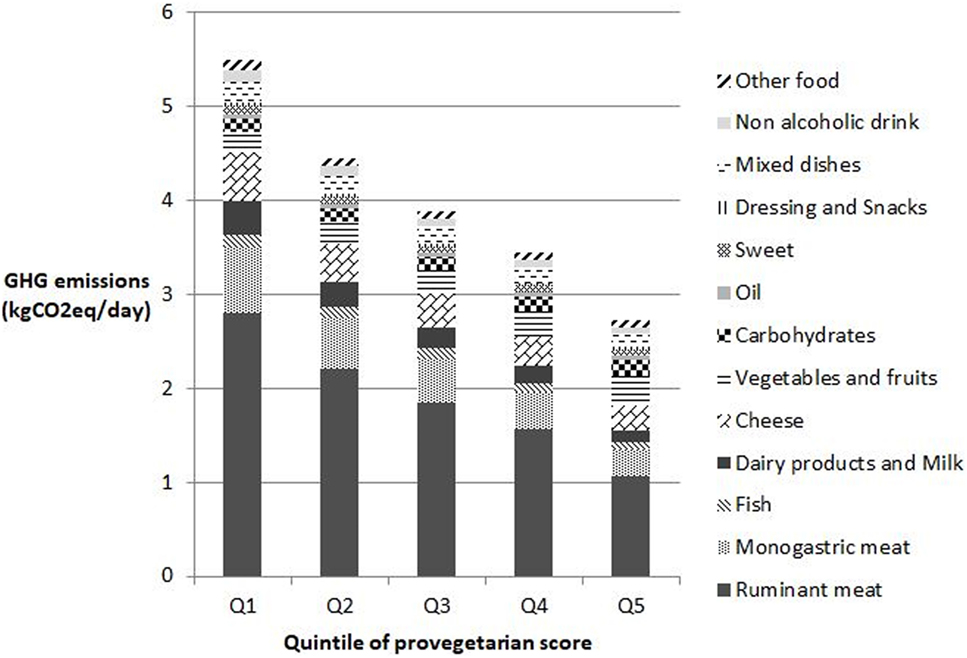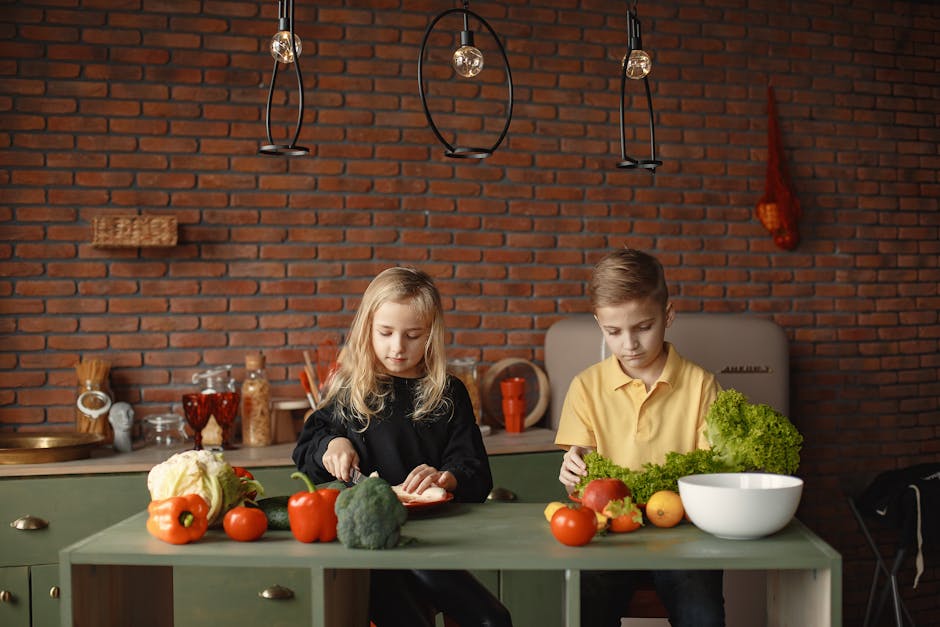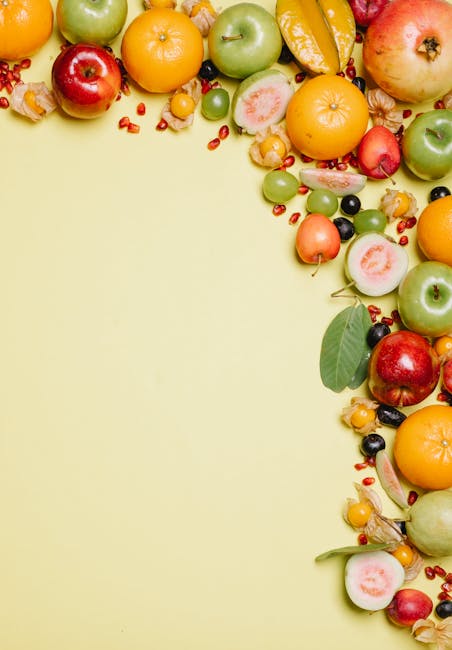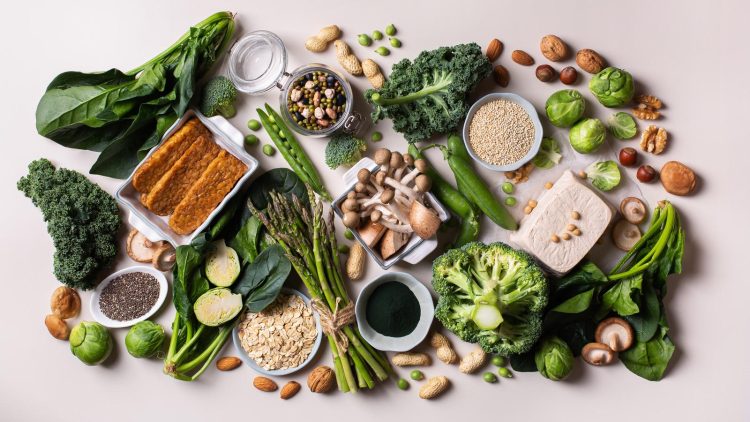Vegetarian vs. Vegan: The ultimate showdown between the plant-based warriors. In one corner, we have the ethically-conscious, environmentally-friendly, health-conscious vegans. And in the other corner, we have the slightly less strict, but still morally superior vegetarians. Who will come out on top in the battle of plant-powered diets? Let’s dive into the world of meat-free living and see which side of the veggie fence reigns supreme.
Key Differences Between Vegetarianism and Veganism
So you’ve decided to switch up your diet and jump on the plant-based bandwagon, but you’re not sure whether to go full vegan or stick with just being a vegetarian. Let’s clear up some of the key differences between the two, so you can make an informed decision (and avoid any awkward conversations at dinner parties).
First things first, let’s talk about cheese. Vegetarians are all about that dairy life, while vegans wouldn’t touch a block of cheddar if their life depended on it. So if you can’t imagine a world without cheese, you might want to reconsider going vegan. But if you’re lactose intolerant like me, maybe ditching the dairy isn’t such a bad idea after all.
Another big difference between the two is eggs. Vegetarians might whip up a mean omelette for breakfast, but vegans steer clear of anything that comes out of a chicken’s butt (no offense, chickens). So if you can’t imagine brunch without eggs, you might want to stick with being a vegetarian. But if you’re like me and can never get that perfect runny yolk, maybe it’s time to leave the eggs behind.
And finally, let’s talk about honey. Vegetarians might drizzle it on their oatmeal, while vegans see it as bee vomit (which, let’s be real, it kind of is). So if you can’t live without that sweet, sticky nectar, you might want to stay vegetarian. But if you’re like me and have always been a little suspicious of bees, maybe it’s time to say goodbye to honey for good.
Ethical Considerations in Choosing a Plant-Based Lifestyle
When embarking on your journey towards a plant-based lifestyle, it’s important to consider the ethical implications of your choices. After all, you don’t want to end up inadvertently harming the environment or contributing to animal exploitation. Here are some ethical considerations to keep in mind:
First and foremost, think about the impact of your dietary decisions on the planet. By choosing plant-based foods over animal products, you’re significantly reducing your carbon footprint and helping to combat climate change. Plus, you’ll be saving gallons of water and acres of land that would have been used in the production of meat and dairy. Mother Earth will thank you!
Another crucial aspect to consider is the welfare of animals. By opting for a plant-based lifestyle, you’re taking a stand against the cruel practices of factory farming and the unnecessary suffering of animals. You’ll be promoting compassion and kindness towards sentient beings, all while enjoying delicious and nutritious plant-based meals. It’s a win-win situation!
Lastly, don’t forget about the health benefits of choosing a plant-based diet. By focusing on whole foods, fruits, vegetables, grains, legumes, and nuts, you’ll be nourishing your body with essential nutrients and reducing your risk of chronic diseases. Your body will thank you for making the ethical choice to prioritize your health and well-being through a plant-based lifestyle!

Environmental Impact of Vegetarian and Vegan Diets
When it comes to the , the benefits are truly out of this world! By ditching meat and animal products, individuals are not only saving cute little animals, but they are also helping to save the planet. Here are a few ways in which vegetarian and vegan diets are making a positive impact:
- Reduced carbon footprint: By cutting out meat and dairy, individuals are significantly reducing their greenhouse gas emissions. Talk about doing your part to fight climate change!
- Preservation of water resources: Did you know that it takes over 1,800 gallons of water to produce just one pound of beef? By choosing plant-based alternatives, people are helping to conserve precious water resources.
- Protection of forests: The livestock industry is one of the leading causes of deforestation. By opting for veggie burgers over beef burgers, individuals are helping to protect our planet’s forests and the wildlife that call them home.
So, the next time someone asks why you’re vegetarian or vegan, you can tell them that you’re basically a superhero saving the Earth, one plant-based meal at a time. Keep up the good work, eco-warriors!

Nutritional Benefits and Challenges of Vegetarianism and Veganism
So you’ve decided to ditch the meat and dairy and go full-on plant-based, huh? Well, get ready for a wild ride because being a vegetarian or vegan comes with its own set of nutritional benefits and challenges!
Let’s start with the good stuff. According to health experts, plant-based diets are chock-full of vitamins, minerals, and antioxidants that can help lower your risk of chronic diseases like heart disease and cancer. Plus, with all the fiber and plant-based proteins you’ll be eating, you’ll have plenty of energy to power through your day. Go you!
But it’s not all smooth sailing in the land of leafy greens and tofu. One of the biggest challenges of being a vegetarian or vegan is making sure you’re getting all the nutrients your body needs. From Vitamin B12 to iron to omega-3 fatty acids, it can be a real struggle to make sure you’re not missing out on essential nutrients.
So, how do you navigate the world of vegetarian and vegan nutrition without losing your mind? Well, first off, make sure you’re incorporating a variety of fruits, vegetables, whole grains, and plant-based proteins into your diet. And don’t be afraid to supplement with Vitamin B12 or iron if you need to. Remember, being a vegetarian or vegan is all about balance and listening to your body. You got this!

The Role of Animal Welfare in Vegetarian and Vegan Choices
When it comes to making vegetarian and vegan choices, animal welfare plays a crucial role. After all, who wants to eat a meal knowing that poor little piggy suffered just so you could have bacon? Not cool, man. So, let’s dive into how animal welfare factors into our dietary decisions.
First of all, have you ever seen those heartbreaking videos of cows crammed into tiny spaces, or chickens living in filthy conditions? It’s enough to make even the most devoted carnivore second-guess their choices. By choosing to go vegetarian or vegan, you’re saying, “Hey, I care about the well-being of animals, and I don’t want to support animal cruelty in any way, shape, or form.” Kudos to you!
And let’s not forget about the environmental impact of factory farming. Did you know that the meat industry is one of the biggest contributors to greenhouse gas emissions? By cutting back on meat consumption, you’re not only helping our furry and feathered friends, but you’re also doing your part to save the planet. That’s a win-win in our book!
So, whether you’re motivated by saving the animals, protecting the environment, or just looking out for your own health, it’s clear that animal welfare plays a key role in making vegetarian and vegan choices. So, next time you’re chowing down on some delicious plant-based grub, give yourself a pat on the back for making a choice that’s not only good for you, but good for the whole darn planet!
Health Effects of Eliminating Animal Products from Your Diet
So you’ve decided to ditch animal products and go full-on plant-based, huh? That’s cool! But let’s talk about some of the changes you might start noticing in your health once you make the switch. Get ready for a wild ride!
Increased Energy Levels: Say goodbye to those afternoon crashes and hello to boundless energy! Without animal products weighing you down, you’ll be zipping through your day like a superhero.
Glowing Skin: Get ready to shine bright like a diamond! Cutting out animal products can do wonders for your skin, leaving you with a radiant complexion that even Kim Kardashian would envy.
Improved Digestion: No more feeling like a bloated balloon after a heavy meal. Your digestive system will thank you for giving it a break from processing all that meat and dairy. Say hello to regularity and goodbye to gas and bloating!
FAQs
Is being a vegetarian or vegan more ethical?
Well, that depends on how you feel about animals. Vegans might argue that by not consuming any animal products, they are taking a stronger stance against animal cruelty. Vegetarians, on the other hand, might feel that by still consuming animal byproducts like eggs and dairy, they are not directly contributing to the harm of animals.
Which lifestyle is better for the environment?
Oh, the age-old question of environmental impact! Vegans typically have the upper hand in this department, as their diet tends to have a smaller carbon footprint than that of vegetarians. By cutting out all animal products, vegans use fewer resources and produce fewer greenhouse gas emissions. Eating plants just got a whole lot greener!
Are there any health differences between being a vegetarian or vegan?
Health-wise, both lifestyles can be great options if you’re getting all your nutrients. Vegetarians have a bit more leeway with their diet since they can still consume dairy and eggs for protein and other nutrients. Vegans, on the other hand, need to pay a bit more attention to their intake of things like protein, calcium, and B12. Just because you don’t eat animals doesn’t mean you can’t have strong bones and muscles!
—
In Conclusion: Eating Your Veggies with a Side of Compassion
Well folks, whether you’re team vegetarian or team vegan, one thing is for sure – both lifestyles have a positive impact on the world around us. So whether you’re swapping out meat for more plant-based meals or going full-on animal product-free, remember that every veggie on your plate is a little victory for the environment, your health, and our furry friends.
So keep on munching those greens and legumes, and don’t forget to sprinkle a little extra love and compassion onto your plate. After all, a happy stomach is a happy heart, right? Stay veggie-tastic, my friends!






